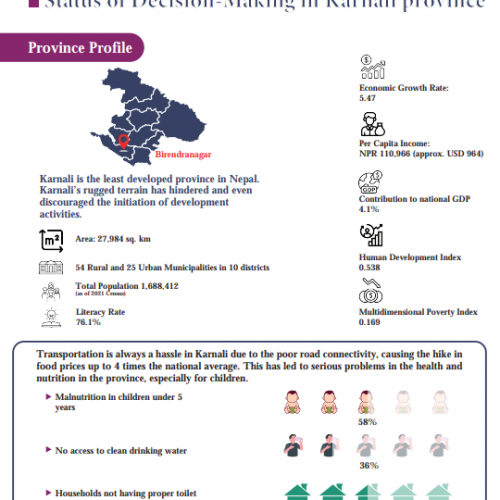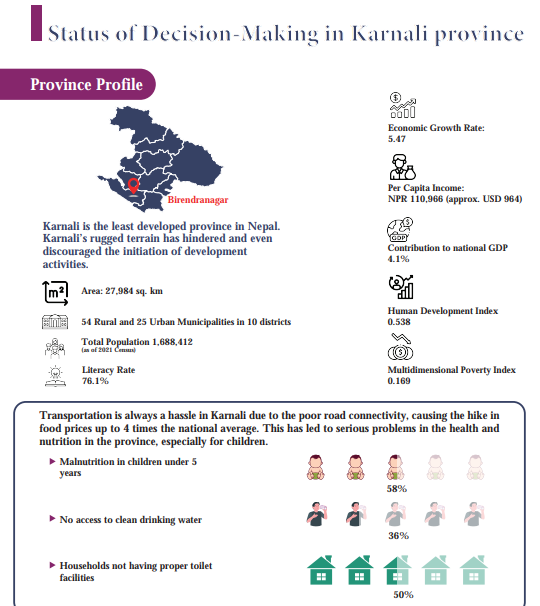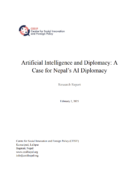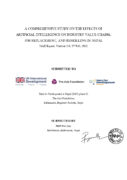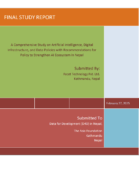
Political Economic Analysis: Data governance at the local level
June 8, 2023
Data and Digital Literacy Handbook Nepali Version
July 11, 2023Status of decision-making in Madhesh, Lumbini, and Karnali provinces
Data-driven decision-making is the practice of using data and evidence to inform the development and implementation of policies. Policymakers can make more informed decisions by using data. The use of data increases transparency and accountability, as policies can be evaluated based on objective metrics rather than subjective opinions. Quality data when made available in a timely manner helps policymakers set priorities and respond to the aspirations of the people. Data-driven decision-making plays a vital role in the successful implementation of federalism as data helps in the formulation of policies and their effective implementation. Through proper use of data, policy interventions can be done effectively in healthcare, education, sanitation, transportation, and other spheres. The Data for Development (D4D) program together with FACTS Research and Analytics conducted a series of discussions to assess the situation of decision-making in Madhesh, Lumbini, and Karnali provinces.

